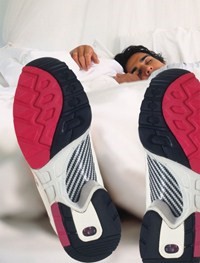Looking to improve your sleep quality to boost your marathon performance? Physio Logic’s clinical nutritionist, Michelle Miller, MSACN, explores the impact of sleep on your body and recommends bedtime rituals and snacks that encourage good rest.
The Importance of Sleep
Quality sleep gives your body time to recuperate and repair itself for future activity.
Sleep. However you may feel about this five letter word, your body feels best after you get it. When you start to lose out on a proper night’s sleep, the quality of your training deteriorates. So let’s dive into how to make sure you catch those Zzs!
How much sleep?
The average adult needs between 7-9 hours of sleep every night. We don’t need to tell you that the less sleep you get, the more it will start to affect your daily life–especially your training.
Whats happens when you don’t get enough sleep
Nights of interrupted sleep can set off a cascade of hormonal shifts that have harmful biological effects on the body. Within a couple of weeks, you may experience higher inflammation (C-reactive protein blood levels) and stress (higher blood cortisol). When your body does get proper rest, it releases Human Growth Hormone (HGH) which helps stimulate muscle and bone recovery. Without HGH your body may take longer to heal and recover.
In addition, you may begin to eat more because your body’s ability to detect fullness and true hunger is off balance. The longer you sleep the more leptin hormone you produce, which allows you to properly detect hunger. The less sleep you get the more ghrelin is produced, which may contribute to excess feelings of hunger.
The time before a race is precious, and you want to ensure you’re fueling your body correctly while getting the proper rest you need.
A key aspect of running a successful marathon is to get enough sleep to ensure you’re energized and making the best choices while training, as well as on race day.
Recommendations for better shut eye
- Experiment with herbal-free teas such as chamomile, valerian root, or lavender
- Try spritzing the room with essential oils (or rub a dab on your temples or bottoms of feet)
- Opt for total darkness in the bedroom
- Blackout curtains
- Sleep mask
- Start winding down 2 hours before bed
- Leave your phone outside the bedroom
- Cover LED lights
- Skip that extra Netflix show right before bed
- Attempt to stop consuming caffeine by 2pm
- If you’re a light sleeper consider a noise machine
- Aim for a room that is 64-70 degrees Fahrenheit
- Avoid high sugar foods before bedtime
- Aim for protein or fat sources (which are good for stabilizing for blood sugar)
- Guacamole, almond butter
- Aim for protein or fat sources (which are good for stabilizing for blood sugar)
